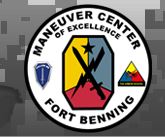Maneuver Center of Excellence Language, Regional Expertise, and Culture (LREC) Program Guidance
The US Army's Manuever Center of Excellence has published guidance on training in language, regional expertise and culture. You can read the full document here or check out an abstract below
Abstract:
Our nation continues to confront conventional and non-conventional threats. In a globalized world, the Army confronts these threats throughout the world and increasingly does so with joint, interagency, inter-government, and multinational (JIIM) partners. Our Soldiers deploy globally at times with little forewarning and operate with partners from different cultural backgrounds. Where operations are distributed, junior leaders will be called upon to make independent assessments in complex situations that cannot be fully foreseen. Soldiers need the capability to rapidly adapt and operate effectively in any foreign environment.
(a) Cultural Competence: Cultural competence is one component of comprehensive Soldier and leader development. Culturally competent Soldiers and leaders possess the knowledge and skills necessary to understand the cultural aspects of their operational environment in order to shape, exert influence, and consolidate gains within that environment. In defining cultural competencies, the recently revised CJCSI 3126.01A delineates twelve capabilities broken down into three domains (See Figure 1):
(b) The CJCSI 3126.01A also delineates three proficiency levels: Basic, Fully Proficient, and Master (For a more detailed explanation of the competencies and proficiency levels, see Attachment 2: Cultural Advisors Info Paper: CJCSI 3126.01A, The new Joint Requirements for Culture and Region, Adam L. Silverman, PhD).
(c) Cultural knowledge is comprised of two domains: 1) general cultural (operational cultural or socio cultural) knowledge and 2) regionally or culturally specific knowledge. General Cultural Knowledge (Operational Culture or Socio Cultural) is comprised of broad topical areas that are relevant to all groups and regions and can be thought of as “Macro Culture.” General cultural knowledge helps leaders gain greater situational awareness when they find themselves in unfamiliar or unpredictable situations (from War College White Paper “Strategic Leader Cultural Awareness: A Professional Imperative”). Cultural general training and development provide the foundation for subsequent regionally or culturally specific knowledge, which is much more detailed, locally or regionally specific, and usually requires immersion or access to native populations to obtain.
(d) The application of cultural competence involves applying general and specific knowledge toward the skills of conducting cross cultural assessment and engagment. In order to shape, influence, and consolidate gains within an operating environment, Soldiers must be able to:
(1) Build effective relationships
(2) Negotiate
(3) Build consensus
(4) Understand local and regional political, military, economic, social, information, and infrastructure concerns and apply them to the planning and execution of the full range of military operations in a JIIM environment
(5) Conduct Key Leader Engagements
(6) Understand complex environments
(7) Communicate cross culturally either through interpreters or through develop language proficiency.
4. LREC Mission: The MCoE Language, Regional Expertise and Culture (LREC) program develops students, cadre, and leaders with the cross-cultural competencies to effectively conduct and lead Infantry, Armor, and Cavalry unit missions across the full range of military operations within a JIIM environment.
(a) Intent: MCoE will develop culturally competent military leaders through training and education that achieves the following goals:
(1) Inculcates respect for other cultures: develops awareness of cultural biases and differences, ours and theirs; and provides knowledge and techniques to minimize cultural friction. Students will value learning about other cultures, foreign languages, regions and develop awareness to operate with a culturally sensitive lens. Midgrade leaders will be able to identify and mitigate cultural friction among their Soldiers.
(2) Develops cross-cultural skills to rapidly adapt, assess, and operate effectively at the tactical level in any cultural environment. Students at the MCoE will demonstrate essential cross-cultural skills to gain situational awareness and effectively engage with and operate among foreign populations. Midlevel leaders will have basic skills to influence foreign populations to achieve military mission objectives.
(3) Trains and educates our midlevel leaders to operate effectively with JIIM partners and build partner capacity. This includes knowledge of partner cultures, ways they operate, techniques to effectively operate with and advise them, and to build the capacity of our partners.
(4) Educates our leaders to incorporate population and cultural factors into planning
for unified land operations; know the major cultural and regional considerations for military decision making and planning; and demonstrate the intellectual agility to apply this knowledge in any cultural and regional environment.
(b) Endstate:
(1) Students, cadre and leaders throughout the MCoE enterprise:
(a) Value learning about other cultures, foreign languages, and regions
(b) Demonstrate essential cross-cultural skills to gain situational awareness and effectively engage with and operate among foreign populations and JIIM partners.
(c) Demonstrate basic skills to shape operations and influence foreign populations to achieve military mission objectives and consolidate gains.
(2) MCoE structured and resourced to support life-long LREC learning for Infantry, Armor, and Cavalry Soldiers and leaders throughout the DOTMLPF spectrum.
5. Execution: The MCoE will integrate LREC throughout the DOTMLPF spectrum along three lines of effort
POC for the MCoE Language Regional Expertise and Culture Strategy and its implementation is LTC Trevor O. Robichaux, Commercial (706) 545-8732, DSN 835-8732, E-mail: trevor.o.robichaux.mil@mail.mil.
